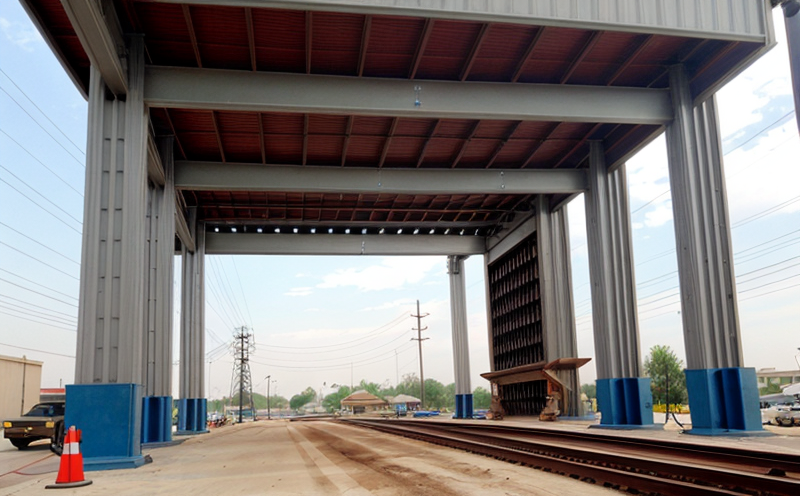MIL-STD-810 Mechanical Shock Testing of Aerospace Equipment
The MIL-STD-810F series of standards provides comprehensive guidelines for testing and environmental conditioning of military equipment, including aerospace systems. The Shock Test (Method 516.7), specifically, evaluates the ability of a product to withstand mechanical shock events that it might encounter during transport or operation.
Aerospace equipment must be designed with extreme robustness in mind due to the harsh operating environments and unpredictable conditions they often face. MIL-STD-810F addresses these challenges by specifying tests that simulate various environmental stresses, including mechanical shock. This ensures that aerospace components can perform reliably under the most demanding conditions.
The test setup involves applying a controlled impulse of energy to the specimen using specialized equipment such as drop towers or hammer testers. The goal is to assess how the item behaves when subjected to an impact equivalent to real-world scenarios, like dropping from a certain height or encountering sudden jolts during takeoff and landing.
Preparation of the test sample is critical; it involves ensuring that the component being tested accurately represents its operational form. This means considering factors such as mass distribution, fastener placement, and any other relevant design features. Once prepared, the specimen goes through a series of tests designed to mimic potential shock events.
The test results provide valuable insights into the durability and integrity of the equipment. Compliance with MIL-STD-810F standards not only ensures that aerospace components meet regulatory requirements but also enhances overall confidence in product reliability. By adhering to these stringent protocols, manufacturers can ensure their products will perform reliably under extreme conditions.
Understanding the scope of this testing helps stakeholders appreciate its importance within the broader framework of quality assurance for aerospace equipment. It underscores why meticulous planning and execution are essential when conducting such tests.
Industry Applications
- Aerospace hardware including avionics, structural components, and propulsion systems
- Military aircraft and missile systems
- Spacecraft and satellite assemblies
| Component Type | Shock Event Simulation | Test Method |
|---|---|---|
| Aircraft structural components | Drop test from varying heights | MIL-STD-810F Test Method 516.7 |
| Satellite power systems | Shock pulse generator simulation | MIL-STD-810F Test Method 516.7 |
| Radar and communication equipment | Impulse hammer testing | MIL-STD-810F Test Method 516.7 |
Eurolab Advantages
We leverage our expertise and state-of-the-art facilities to deliver accurate, repeatable results that meet the highest industry standards.
- ISO/IEC 17025 accredited laboratory ensuring reliability and accuracy
- Advanced shock testing equipment for precise simulations
- Dedicated team of engineers with extensive aerospace experience
- Pioneering methodologies to identify potential issues early in the development process
Our comprehensive approach ensures that every aspect of your product is thoroughly evaluated, providing you with confidence in its performance and durability.
Quality and Reliability Assurance
At Eurolab, we understand the importance of quality assurance in aerospace applications. Our commitment to excellence extends beyond compliance; it encompasses continuous improvement and innovation.
- Comprehensive documentation supporting all test procedures
- Detailed reports highlighting key findings and recommendations
- Regular calibration of all testing equipment to ensure accuracy
- In-depth analysis of each test result to identify areas for improvement
We strive to provide you with the best possible service, ensuring that your aerospace products are not only compliant but also exceed expectations.





